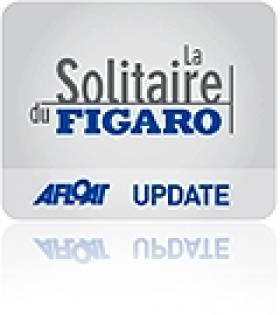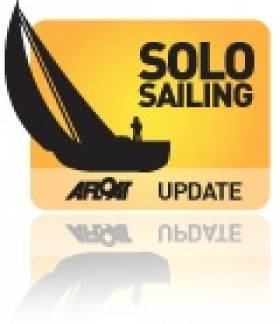Displaying items by tag: singlehanded
Laser Designer Launches Iconic Boat Under New Name
#Laser - The sailing world has been taken by surprise with the news that the designer of the Laser has launched his iconic design under a whole new brand amid allegations over royalty payments.
Bruce Kirby - whose single-handed one-design has become a staple at the Olympic Games - has apparently signed all new builder agreements to manufacture his rechristened Kirby Torch design, after terminating his previous deals at the end the last year.
"The issue is supply of the Kirby sailboat and parts to sailors worldwide," according to the Kirby Torch website. "After numerous attempts, Bruce Kirby felt he had no choice but to withdraw Laser brand building rights in North America and Europe."
It's alleged that lack of royalty payments for the design by at least one top manufacturer prompted the move by Kirby to strike out on own, but nothing has been confirmed as of this time.
It is also not known exactly what the consequences will be for currently sailed Lasers and for the International Laser Class Association (ILCA), although the Kirby Torch website states that all ISAF-plaqued Lasers are class legal under the renamed fleet.
More on this story as it develops...
No Host Port for Ireland in 2013 Figaro
#Figaro - The course for this year's Solitaire du Figaro has been finalised - with no Irish port in the lineup.
The Daily Sail details the four legs of the 44th edition of the prestigious and challenging single-handed offshore race, that will take the fleet from Bordeaux to Porto, Gijón, Roscoff and Dieppe - with no changes from the course unveiled in December.
But despite indications that Ireland would have a host port on the race route, following previous stop-overs on Kinsale, Dingle, Howth, Crosshaven and Dun Laoghaire, it appears this summer's running will be a purely continental event.
Even so, Ireland will be represented among the competing fleet by the brother of last year's Sailor of the Year David Kenefick, who is set to make his Figaro debut.
The Cork Harbour helmsman, who came second in the La Grande Motte recently, discussed race tactics as he steps up his training ahead of the race from 2-23 June.
Attempt at Round Britain and Ireland Record Underway
The current single-handed record for the 1,785 nautical mile lap of Britain and Ireland stands at 6 days 6 hours 40 minutes and 31 seconds, which was set by fellow Frenchman Thomas Coville onboard his trimaran Sodebo in 2006. In order to beat his record, Sidney needs to maintain an average boat speed of above 11.86 knots.
The record route will see him head anti clockwise around Britain and Ireland finishing once again at Lizard Point. The weather team are currently predicting a slow start to the attempt, with light westerly winds, however the breeze is set to build from the south-west to provide 20 – 25 knot reaching conditions on the first night.
"My main aim before the Route du Rhum is to focus on sailing single handed. I don't need to practice boat speed, as I am confident that I can get the best out of the boat, but I need to practice sailing single-handed as it is a very different discipline from crewed racing. This record is not only a great challenge but being such a coastal route, it will give me some crucial navigational experience onboard and provide a real challenge for me mentally and physically, with the overall aim to push myself," Oman Air Skipper Sidney Gavignet.
Oman Air arrived in the French port of Loreint in July, after a delivery from her home port of Muscat in Oman. The team have been busy preparing for the up coming record attempt and training period ahead of the Route Du Rhum. It has been non –stop for the Omani team following the announcement of a title sponsor in the form of the national airline of the Sutanate, Oman Air. A complete re-brand of the trimaran followed, as well as switching the boat from her fully crewed setup to single handed racing.
The Round Britain and Ireland record attempt has seen a complete change in the setup onboard Oman Air, skipper Sidney has managed to save almost 500 kg by removing unnecessary items such as computer screens, the generator and the galley. Newly designed 3DL sails have arrived and been fitted, whilst Sidney and the team have been waiting on standby for the record attempt. Sidney commented ahead of the attempt, "The boat has a new sponsor and we are setup and ready to go. I have wanted to take on this record for some time and with the Route Du Rhum fast approaching my departure dates are limited. I have been working closely with the weather routers and the forecasts look good so it has to be now! I hope the weather conditions give me a good chance me to beat Thomas Coville's record, which he set almost exactly four years ago. The coast of Britain is roughly half the length of the Route du Rhum, and it is a difficult coast to navigate. I am sure this is going to be a huge challenge with little time for sleep".































































